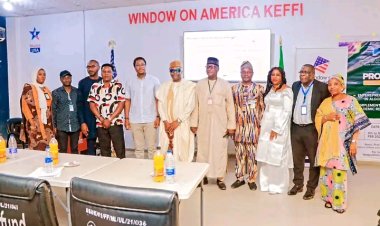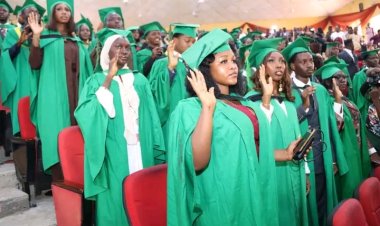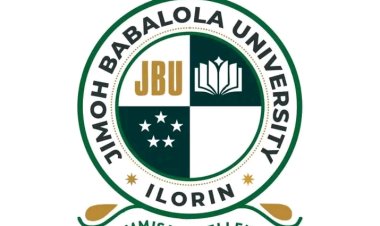Meet Dr. Joshua Luka, A Distinguished Academic and Researcher in Veterinary Helminthology UNIMAID
Meet Dr. Joshua Luka, A Distinguished Academic and Researcher in Veterinary Helminthology UNIMAID

The Faculty of Veterinary Medicine at the University of Maiduguri is pleased to announce the profile of Dr. Joshua Luka, a renowned academic and researcher in the field of Veterinary Helminthology.
Read Also:PANS Cultural Day: A Celebration of Diversity and Unity at UNIMAID
Dr. Luka holds a Doctor of Veterinary Medicine (DVM) degree from the University of Maiduguri (2004), a Masters of Veterinary Science (MVSc) degree from the same institution (2013), and a Doctor of Philosophy (PhD) in Veterinary Helminthology from Ahmadu Bello University Zaria (2018). With a distinguished academic career spanning over 15 years, Dr. Luka has risen through the ranks to become a Reader (2021) and is currently the Sub-Dean of the Faculty of Veterinary Medicine at the University of Maiduguri. He has authored and co-authored over 60 publications in national and international journals and serves as a reviewer for several prestigious journals.
Read Also:UNIMAID Second Semester Provisional CA Timetable, 2022/2023 session
Dr. Luka's research focus includes the assessment of plant-based products on helminthes and protozoans, and the use of molecular tools to understand helminth species, ecology, and biology. He is a member of several professional bodies, including the Nigerian Veterinary Medical Association, Parasitology and Public Health Society, and the American Malacological Society. Notably, Dr. Luka's PhD research focused on distinguishing the common species of Fasciola and understanding the nexus between Fasciola and snails other than Radix natalensis. He received technical support from the WHO Collaborating Centre on Fascioliasis and Its Snail Vectors, FAO-United Nations Reference Centre for Parasitology, and the Instituto de Ganadería de Montaña (CSIC-Universidad de León), Department of Animal Health, University of Leon, Spain.
Read Also:UNIMAID Releases Important Announcement for Bio 203 Students

 UmarFarouk123
UmarFarouk123 



